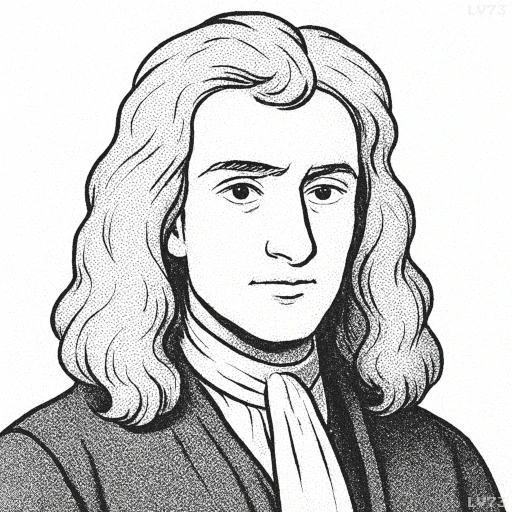“God made and governs the world invisibly, and has commanded us to love and worship him and no other God; to honor our parents and masters, and love our neighbours as ourselves; and to be temperate, just, and peaceable, and to be merciful even to brute beasts.”

- January 4, 1643 – March 31, 1727
- Born in England (UK)
- Natural philosopher, mathematician, physicist, astronomer, theologian
table of contents
Quote
“God made and governs the world invisibly, and has commanded us to love and worship him and no other God; to honor our parents and masters, and love our neighbours as ourselves; and to be temperate, just, and peaceable, and to be merciful even to brute beasts.”
Explanation
In this quote, Isaac Newton expresses his religious convictions and moral philosophy, which were integral to his worldview. He suggests that God governs the universe not through visible, direct intervention but through an invisible and divine order that permeates all of existence. For Newton, the laws of nature were a reflection of this divine order, and he believed that human beings should align themselves with God’s will by living morally. His ethical teachings emphasize love, respect, and justice, urging individuals to not only honor those in positions of authority but also to show kindness and compassion toward others, including even animals. This view connects the spiritual with the practical, encouraging virtues that enhance both personal and societal well-being.
Newton’s religious views were deeply shaped by the context of the 17th century, a time when Christianity and scientific inquiry were often seen as intertwined rather than opposed. Newton himself was a devout Christian, though his beliefs often leaned toward a nontraditional understanding of the Trinity, reflecting his interest in interpreting biblical texts through the lens of reason. His belief in a benevolent creator governed his approach to both science and ethics. He saw no conflict between scientific discovery and religious faith, believing that understanding the natural world was a way of understanding God’s creation.
Today, Newton’s religious and moral views might seem distant from the secular, scientific perspective that predominates modern thought. However, his emphasis on values such as temperance, justice, and peace remains relevant in contemporary moral philosophy and ethics. These principles are echoed in many of today’s human rights frameworks, which advocate for compassion and fairness toward all living beings. Even in modern scientific communities, Newton’s view of a universe governed by order and reason continues to influence how scientists approach both their work and their broader responsibilities in society.
Would you like to share your impressions or related stories about this quote in the comments section?


